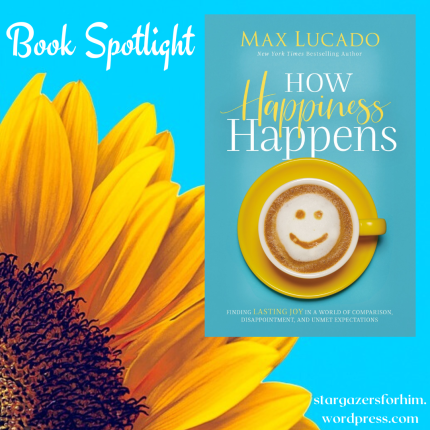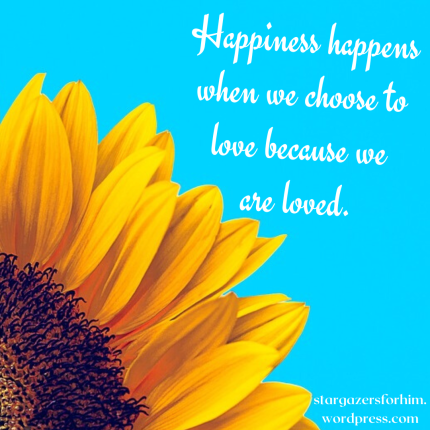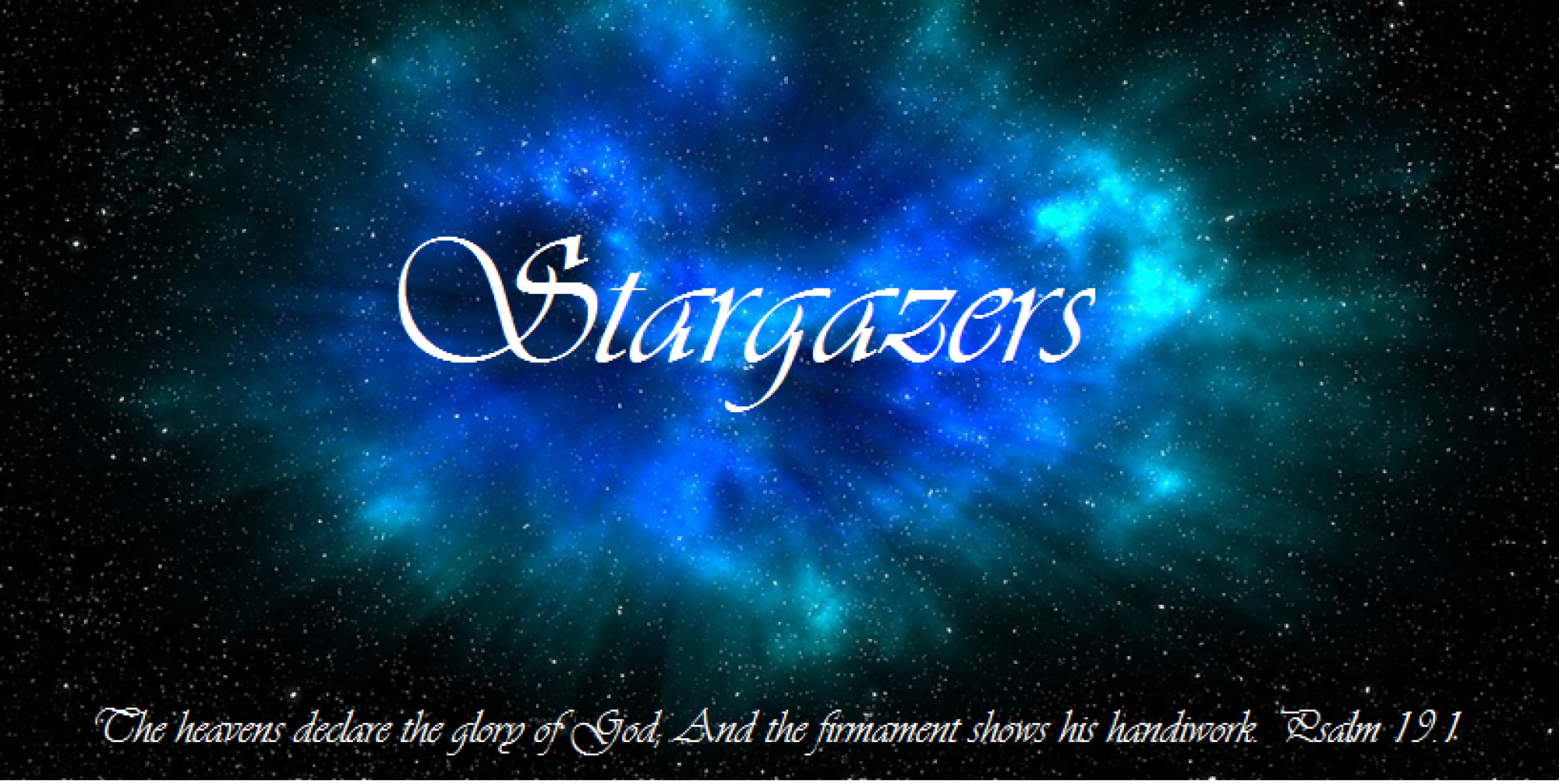Inspired by the book How Happiness Happens by Max Lucado.
What does it mean to be happy? I mean really, truly happy. There are so many definitions of happiness these days. It can mean delighted, pleased, glad, content, joyful, indicative of pleasure, willingness to be helpful, contribution, participation, fortunate, lucky, an expression of good wishes, felicitous and the list keeps going all for a five-letter word (Dictionary.com).
But what does it mean? What does happiness look like? According to Max Lucado, the world says, “Happiness happens when you lose the weight, get the date, find the mate, or discover your fate. It’s wide, this front door to happiness. Yet for all its promises it fails to deliver.” ~ How Happiness Happens, pg. 6
The world promises that if we achieve, purchase, or eat a certain thing we will be happy. But achievements are followed by letdowns or new goals. Physical things break or fail to live up to expectations. And despite what advertisements say, happiness can’t be found at the bottom of a bag of chips.
Happiness can’t be found in people either. They’ll let us down, forget the meeting, hurt our feelings, and leave us out. Rather, in his book How Happiness Happens Lucado suggests that one of the ways happiness can be found is by loving people.
Happy is he who has the God of Jacob for his help, Whose hope is in the Lord his God, ~Psalm 146:5

In his book, Lucado wrote that “Happiness is less an emotion and more a decision, a decision to bear with one another.” ~ Pg. 34
We expect it to be an emotion though. Happiness is supposed to come with warm fuzzies, sunshine, rainbows, and butterflies, isn’t it? At least that’s what the romantic comedies seem to portray. It’s what novels often reflect. It’s the narrative the world has created.
But holding on to happiness is much more of a decision. It does not mean gritting your teeth and pretending that everything is perfect, but rather it means deciding not to let people or circumstances steal your joy.
“Suppose a basket of ping-pong balls represents your daily quota of happiness,” Lucado wrote. “Each aggravation, if you allow it, can snatch a ball out of your basket.” ~ Pg. 32
That person will not stop smacking their gum. Out goes a ball. That customer was so rude. Another ball rolls away. My coworker totally blindsided me. A ball smacks against the wall. The prices at the store are outrageous. The gas pump is out of order. Dinner is burned. Kids are sick. After a long day, it’s a wonder there are any balls left in our happiness bucket.
We can play the victim card and mope that it’s not fair. Or we can take control of our happiness quota and choose to let the little things roll off our shoulders. We can bear with one another in love.
I, therefore, the prisoner of the Lord, beseech you to walk worthy of the calling with which you were called, with all lowliness and gentleness, with long suffering, bearing with one another in love, endeavoring to keep the unity of the Spirit in the bond of peace. ~ Ephesians 4:1-3
Of course there are occurrences in life that dump out our entire happiness bucket at once. People can be cruel, and this world can be harsh. But when the pain is a little less, Lucado shared that “Health and happiness happen when forgiveness begins to flow.” ~ Pg. 137
Forgiveness is not everyone’s favorite word. Anger is easier. It takes little effort to stay mad. It takes every effort to forgive. Bitterness consumes good intentions, and the desire for revenge prevents healing. But there is freedom in forgiveness.
Lucado wrote, “The question is not, Did you get hurt? The question is, Are you going to let the hurt harden you? Numb you? Suck up all your joy? Wouldn’t you prefer to be ‘tenderhearted, forgiving one another’?”‘ ~ Pg. 142
And be kind to one another, tenderhearted, forgiving one another, even as God in Christ forgave you. ~ Ephesians 4:32
It’s worth mentioning that forgiveness does not mean you’ll suddenly have to be best buddies with your offenders. It doesn’t mean you even have to enjoy being in the same room with them. Rather, Lucado described forgiveness as a change of attitude. “It’s moving from a desire to harm toward an openness to be at peace.” ~Pg. 136
Finally, “Happiness happens when you offer to others the grace you’ve been given.” ~ Lucado, pg. 145
Stop for a moment and think of all the times God has given you grace. A closer look at the list may show that most of the time grace wasn’t deserved. Neither was love. But God gave it anyway.
“He knew our promises would fall like broken glass. He knew we would dart into a dark alley of shame. He knew we would bury our faces between our knees.” ~Lucado, pg. 141
Yet God forgave us. When it comes down to it, we all have our faults. We all have things we struggle with. We all take it out on others once and a while. But God offers us grace and love despite our shortcomings.
And when we do the same, happiness happens. It’s not just a Biblical principle either. Lucado cited several studies that showed a direct correlation between happiness, unselfishness, and forgiveness.
Happiness happens not when we get something, but when we give something. Happiness happens when we give grace and forgiveness. Happiness happens when we choose to love because we are loved.
It isn’t dependent on people or even us. Happiness comes from God. It comes when we delight in Him and His ways, when we trust Him and hope in Him.
Thus, “We love people for this reason: we have come to experience and believe the love that God has for us.” ~Lucado, pg. 153
And when we love one another out of the love we have been given, we find true happiness.
All is Grace, Esther Noe

P.S. If you enjoyed this post, please like, comment, and share! In 2020, I wrote a Book Spotlight on A Love Worth Giving by Max Lucado. You can read it here.
Disclaimer: All Scripture quoted was from the New King James Version of the Bible as found on biblegateway.com. I own no rights to this book nor am I affiliated with it. These are simply my reflections. All credit goes to Max Lucado and his publishers. This review was not required. All thoughts are my own.
